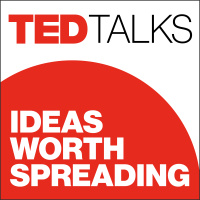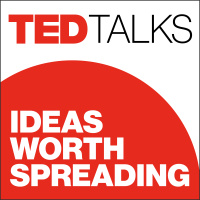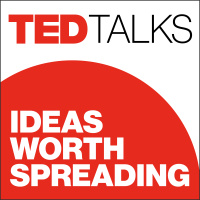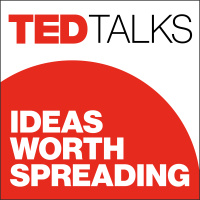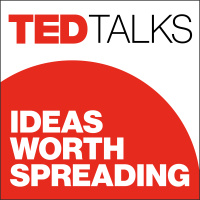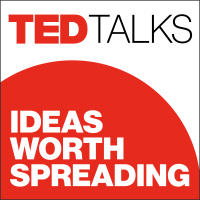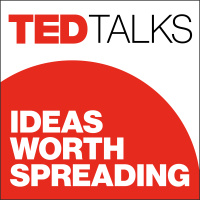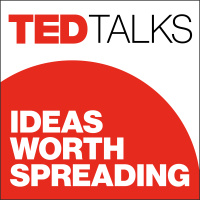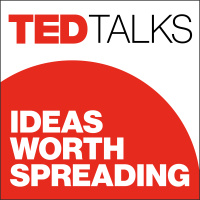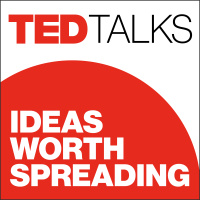Synopsis
Want TED Talks on the go? Every weekday, this feed brings you our latest talks in audio format. Hear thought-provoking ideas on every subject imaginable -- from Artificial Intelligence to Zoology, and everything in between -- given by the world's leading thinkers and doers. This collection of talks, given at TED and TEDx conferences around the globe, is also available in video format.
Episodes
-
Facebook's role in Brexit -- and the threat to democracy | Carole Cadwalladr
16/04/2019 Duration: 15minIn an unmissable talk, journalist Carole Cadwalladr digs into one of the most perplexing events in recent times: the UK's super-close 2016 vote to leave the European Union. Tracking the result to a barrage of misleading Facebook ads targeted at vulnerable Brexit swing voters -- and linking the same players and tactics to the 2016 US presidential election -- Cadwalladr calls out the "gods of Silicon Valley" for being on the wrong side of history and asks: Are free and fair elections a thing of the past? Hosted on Acast. See acast.com/privacy for more information.
-
Empower a girl, transform a community | Kakenya Ntaiya
15/04/2019 Duration: 12minKakenya Ntaiya turned her dream of getting an education into a movement to empower vulnerable girls and bring an end to harmful traditional practices in Kenya. Meet two students at the Kakenya Center for Excellence, a school where girls can live and study safely -- and uplift their community along the way. "When you empower a girl, you transform a community,"Ntaiya says. Hosted on Acast. See acast.com/privacy for more information.
-
3 lessons on starting a movement from a self-defense trailblazer | Rana Abdelhamid
12/04/2019 Duration: 11minAt 16,Rana Abdelhamid started teaching self-defense to women and girls in her neighborhood. Almost 10 years later, these community classes have grown into Malikah: a global grassroots network creating safety, power and solidarity for all women. How did she do it? Abdelhamid shares three ingredients for building a movement from the ground up. Hosted on Acast. See acast.com/privacy for more information.
-
How risk-taking changes a teenager's brain | Kashfia Rahman
11/04/2019 Duration: 11minWhy do teenagers sometimes make outrageous, risky choices? Do they suddenly become reckless, or are they just going through a natural phase? To find out, Kashfia Rahman -- winner of the Intel International Science and Engineering Fair (and a Harvard freshman) -- designed and conducted an experiment to test how high school students respond to and get used to risk, and how it changes their still-developing brains. What she discovered about risk and decision-making could change how we think about why teens do what they do. Hosted on Acast. See acast.com/privacy for more information.
-
Wearable tech that helps you navigate by touch | Keith Kirkland
10/04/2019 Duration: 06minKeith Kirkland is developing wearable tech that communicates information using only the sense of touch. He's trying to figure out: What gestures and vibration patterns could intuitively communicate ideas like "stop" or "go"? Check out his team's first product, a navigation device for the blind and visually impaired, and learn more about the entirely new "haptic language" he's creating to power it. Hosted on Acast. See acast.com/privacy for more information.
-
How to lead a conversation between people who disagree | Eve Pearlman
08/04/2019 Duration: 09minIn a world deeply divided, how do we have hard conversations with nuance, curiosity, respect? Veteran reporter Eve Pearlman introduces "dialogue journalism": a project where journalists go to the heart of social and political divides to support discussions between people who disagree. See what happened when a group that would have never otherwise met -- 25 liberals from California and 25 conservatives from Alabama -- gathered to talk about contentious issues. "Real connection across difference: this is a salve that our democracy sorely needs," Pearlman says. Hosted on Acast. See acast.com/privacy for more information.
-
An AI smartwatch that detects seizures and saves lives | Rosalind Picard
05/04/2019 Duration: 16minEvery year worldwide, more than 50,000 otherwise healthy people with epilepsy suddenly die. These deaths may be largely preventable, says AI researcher Rosalind Picard. Learn how Picard helped develop a cutting-edge smartwatch that can detect epileptic seizures before they occur -- and alert nearby loved ones in time to help them. Hosted on Acast. See acast.com/privacy for more information.
-
What refugees need to resettle | Muhammed Idris
04/04/2019 Duration: 06minEvery minute, 20 people are newly displaced by climate change, economic crisis and political instability, according to the UNHCR. How can we help them overcome the barriers to starting new lives? TED Resident Muhammed Idris is leading a team of technologists, researchers and refugees to develop Atar, the first-ever AI-powered virtual advocate that guides displaced people through resettlement, helping restore their rights and dignity. "Getting access to the right resources and information can be the difference between life and death," Idris says. Hosted on Acast. See acast.com/privacy for more information.
-
A Parkland teacher's homework for us all | Diane Wolk-Rogers
03/04/2019 Duration: 15minDiane Wolk-Rogers teaches history at Marjory Stoneman Douglas High School in Parkland, Florida, site of a horrific school shooting on Valentine's Day 2018. How can we end this senseless violence? In a stirring talk, Wolk-Rogers offers three ways Americans can move forward to create more safety and responsibility around guns -- and invites people to come up with their own answers, too. Above all, she asks us to take a cue from the student activists at her school, survivors whose work for change has moved millions to action. "They shouldn't have to do this on their own," Wolk-Rogers says. "They're asking you to get involved." Hosted on Acast. See acast.com/privacy for more information.
-
How does income affect childhood brain development? | Kimberly Noble
02/04/2019 Duration: 11minNeuroscientist and pediatrician Kimberly Noble is leading the Baby's First Years study: the first-ever randomized study of how family income changes children's cognitive, emotional and brain development. She wants to find out: Can we help kids in poverty simply by giving families more money? "The brain is not destiny," Noble says. "And if a child's brain can be changed, then anything is possible." Hosted on Acast. See acast.com/privacy for more information.
-
How sci-fi inspired us to go to the Moon | Alexander MacDonald
01/04/2019 Duration: 13minLong before we had rocket scientists, the idea of spaceflight traveled from mind to mind across generations. With great visuals, author and NASA economist Alexander MacDonald shows how 300 years of sci-fi tales -- from Edgar Allan Poe to Jules Verne to H.G. Wells and beyond -- sparked a culture of space exploration. A fascinating look at how stories become reality, featuring a goose machine sent to the Moon. Hosted on Acast. See acast.com/privacy for more information.
-
Can we regenerate heart muscle with stem cells? | Chuck Murry
29/03/2019 Duration: 14minThe heart is one of the least regenerative organs in the human body -- a big factor in making heart failure the number one killer worldwide. What if we could help heart muscle regenerate after injury? Physician and scientist Chuck Murry shares his groundbreaking research into using stem cells to grow new heart cells -- an exciting step towards realizing the awesome promise of stem cells as medicine. Hosted on Acast. See acast.com/privacy for more information.
-
A short history of trans people's long fight for equality | Samy Nour Younes
28/03/2019 Duration: 06minTransgender activist and TED Resident Samy Nour Younes shares the remarkable, centuries-old history of the trans community, filled with courageous stories, inspiring triumphs -- and a fight for civil rights that's been raging for a long time. "Imagine how the conversation would shift if we acknowledge just how long trans people have been demanding equality," he says. Hosted on Acast. See acast.com/privacy for more information.
-
To detect diseases earlier, let's speak bacteria's secret language | Fatima AlZahra'a Alatraktchi
27/03/2019 Duration: 11minBacteria "talk" to each other, sending chemical information to coordinate attacks. What if we could listen to what they were saying? Nanophysicist Fatima AlZahra'a Alatraktchi invented a tool to spy on bacterial chatter and translate their secret communication into human language. Her work could pave the way for early diagnosis of disease -- before we even get sick. Hosted on Acast. See acast.com/privacy for more information.
-
A new class of drug that could prevent depression and PTSD | Rebecca Brachman
26/03/2019 Duration: 05minCurrent treatments for depression and PTSD only suppress symptoms, if they work at all. What if we could prevent these diseases from developing altogether? Neuroscientist and TED Fellow Rebecca Brachman shares the story of her team's accidental discovery of a new class of drug that, for the first time ever, could prevent the negative effects of stress -- and boost a person's ability to recover and grow. Learn how these resilience-enhancing drugs could change the way we treat mental illness. Hosted on Acast. See acast.com/privacy for more information.
-
The surprising habits of original thinkers | Adam Grant
25/03/2019 Duration: 14minHow do creative people come up with great ideas? Organizational psychologist Adam Grant studies "originals": thinkers who dream up new ideas and take action to put them into the world. In this talk, learn three unexpected habits of originals -- including embracing failure. "The greatest originals are the ones who fail the most, because they're the ones who try the most," Grant says. "You need a lot of bad ideas in order to get a few good ones." Hosted on Acast. See acast.com/privacy for more information.
-
What's killing bees -- and how to save them | Noah Wilson-Rich
20/03/2019 Duration: 12minBees are dying off in record numbers, but ecologist Noah Wilson-Rich is interested in something else: Where are bees healthy and thriving? To find out, he recruited citizen scientists across the US to set up beehives in their backyards, gardens and rooftops. Learn how these little data factories are changing what we know about the habitats bees need to thrive -- and keep our future food systems stable. Hosted on Acast. See acast.com/privacy for more information.
-
3 lessons on success from an Arab businesswoman | Leila Hoteit
19/03/2019 Duration: 13minProfessional Arab women juggle more responsibilities than their male counterparts, and they face more cultural rigidity than Western women. What can their success teach us about tenacity, competition, priorities and progress? Tracing her career as an engineer, advocate and mother in Abu Dhabi, Leila Hoteit shares three lessons for thriving in the modern world.2547 Hosted on Acast. See acast.com/privacy for more information.
-
The secret to scientific discoveries? Making mistakes | Phil Plait
18/03/2019 Duration: 11minPhil Plait was on the Hubble Space Telescope team that discovered the first exoplanet ever detected -- until they realized they'd made a mistake. What happened next? Follow along as Plait shows how science progresses -- through a robust amount of making and correcting errors. "The price of doing science is admitting when you're wrong, but the payoff is the best there is: knowledge and understanding," he says. Hosted on Acast. See acast.com/privacy for more information.
-
How to keep human biases out of AI | Kriti Sharma
15/03/2019 Duration: 12minAI algorithms make important decisions about you all the time -- like how much you should pay for car insurance or whether or not you get that job interview. But what happens when these machines are built with human biases coded into their systems? Technologist Kriti Sharma explores how the lack of diversity in tech is creeping into our AI, offering three ways we can start making more ethical algorithms. Hosted on Acast. See acast.com/privacy for more information.








